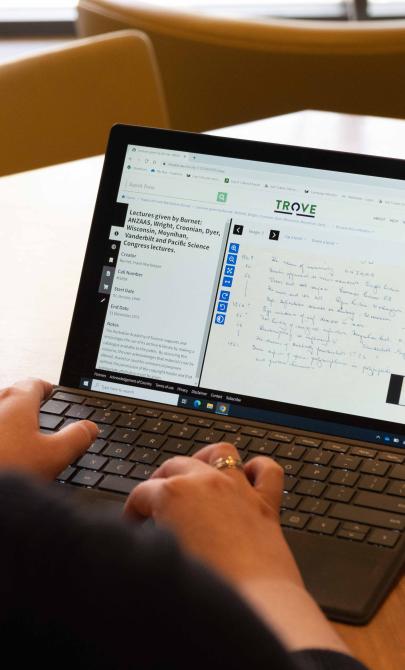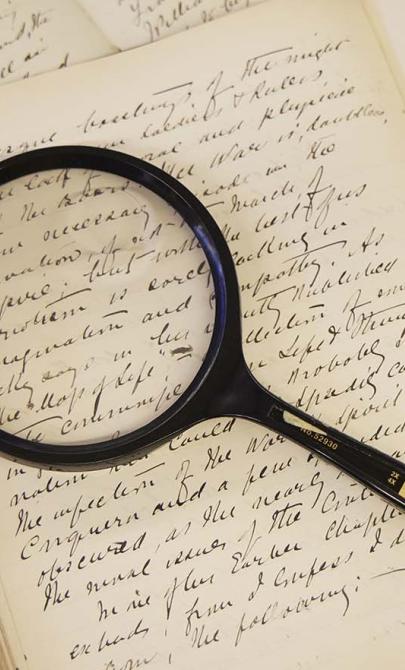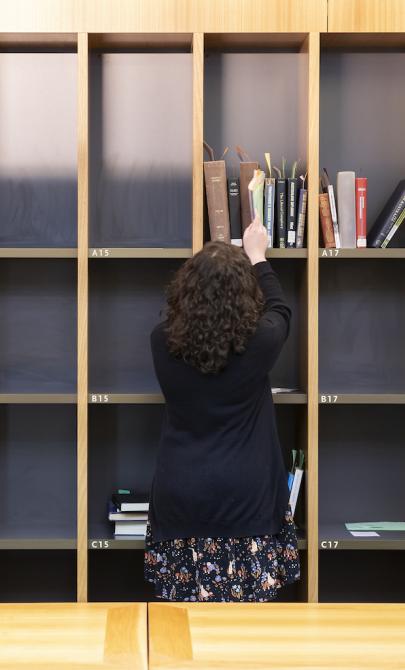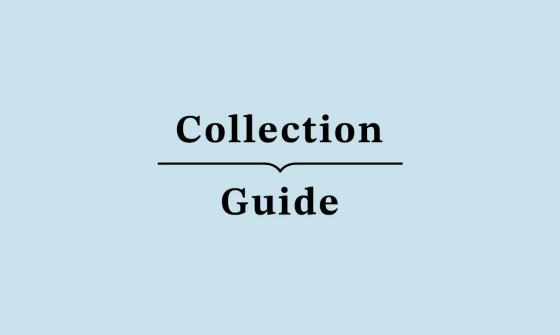Osborne Collection
Key items in the collection
Highlights from this collection demonstrate its historical significance and variety.
The books donated by Osborne were not kept together and there is unfortunately no listing. It appears that there were about 200 American books and a smaller number on the French Revolution and Napoleon. The following are examples of books in his Americana collection:
- Edward Arber, The Story of the Pilgrim Fathers, 1606–1623 AD, London, 1897
- Emily Ferguson, Janey Canuck in the West, London, [1910?]
- John Fiske, Old Virginia and her Neighbours, 2 vols, Boston, 1897
- Arthur Helps, The Spanish Conquest in America, 4 vols, London, 1900
- Increase Mather, Remarkable Providences Illustrative of the Earlier Days of Colonisation, London, 1856
- James J Roche, The Story of the Filibusters, London, 1891
- Maximilian Schele De Vere, The Romance of American History: Early Annals, London, 1872
- William Walker, The War in Nicaragua, Mobile, 1860.
The French Revolution collection includes the following books:
- Emmanuel Antoine Chaptal, Mes Souvenirs sur Napoleon, Paris, 1893
- Arthur Chuquet, La Jeunesse de Napoleon, 2 vols, Paris, 1898
- Jean Roche Coignet, The Narrative of Captain Coignet, Soldier of the Empire 1776–1850, London, 1897
- Karlo Excelimanns, The Eventful Life of Napoleon Bonaparte, Late Emperor of the French, 4 vols, London, 1828
- William Hazlitt, The Life of Napoleon Buonaparte, 4 vols, London, 1852
- Joachim Kuhn, Pauline Bonaparte: Napoleon's Attendant Star, London, 1937
- Louise-Philippe Segur, Memoirs and Recollections of Count Louise-Philippe Segur, 3 vols, London, 1825–1827
- Clement Shaw, Letizia Bonaparte (Madam Mère), London, 1928.
Among the collection deposited by Laver are 2 books that are believed to have belonged to Sir Isaac Newton:
- Marcus Junianus Justinus, Trogi Pompeii Historiarum Philippicarum epitoma Oberursel, 1602 (signed by Isaac Newton)
- Bernhard Varenius, Geographia Generalis, edited by Isaac Newton, Cambridge, 1681.
The Osborne Collection contains 15 letters by 18th- and 19th-century scientists and physicians. The writers were:
- John Abernethy (undated)
- Sir Joseph Banks (1817 and undated)
- Charles Darwin (undated)
- Sir Humphrey Davey (1812)
- Michael Faraday (1868)
- Sir William Herschel (1806)
- Thomas Huxley (1852, 1879 and undated)
- Sir Richard Owen (1853)
- James Nasmyth (1840)
- Sir Hans Sloane (1710)
- Herbert Spencer (1892)
- James Watt (1794).
In addition, there is a document drawn up by French army staff in preparation for an invasion of England in 1798 by a French army of 90,000 men. The letters set out in detail the requirements of expected casualties of 15,000 wounded.
The papers of Oscar Mendelsohn (1896–1978), a student and friend of Osborne, include:
- a voluminous correspondence between the 2 men (1940–1967)
- a typescript of Osborne's unpublished autobiography dictated by him in 1967 together with a tape of his last dictation in August 1967
- copies of letters to Osborne from CD Leake of the University of Texas (1948–1954)
- a 9-page typescript entitled 'Osborne, man of versatility' by Mendelsohn.
About William Osborne
Early life and education
William Alexander Osborne (1873–1967) was born at Holywood, County Down, Northern Ireland, and educated at the Upper Sullivan School, Queen’s College, Belfast, and the University of Tűbingen.
Academic career
In 1899 he was appointed lecturer at University College, London, and in 1903 he was appointed Professor of Physiology and Histology at the University of Melbourne. He held this post until his retirement in 1938. He was Dean of the Faculty of Medicine from 1929 to 1938.
Mentorship and influence
Although his interest in medical research declined, he was an inspiring lecturer and worked closely with his best students. Two of them, Macfarlane Burnett and John Eccles, were later to win Nobel Prizes.
Literary and cultural interests
Osborne was a man of extraordinarily wide interests. He was a poet, essayist and biographer, a regular contributor to the Melbourne press, and from 1938 to 1955 was the star of a radio panel quiz program.
Community and organisational roles
Osborne held office in such bodies as the Melbourne Shakespeare Society, the Classical Association of Victoria, the Australian Forest League, the Free Library Movement, the Royal Historical Society of Victoria, and the Advisory Board of the Commonwealth Literary Fund.
Published works
Among Osborne's publications were:
- The Laboratory and Other Poems (1907)
- Elements of Animal Physiology (1909)
- William Sutherland, a Biography (1920)
- Elementary Practical Biochemistry (1924)
- Elements of Pharmacology (1927)
- The Visitor to Australia (1934)
- Essays and Literary Sketches (1943).
Collector and library
Osborne assembled a very impressive library. He was also a great collector of documents, including items signed by:
- Erasmus
- Philip Melanchthon
- Galileo
- Henry Purcell
- George Washington
- Thomas Jefferson
- Napoleon
- Sir Joseph Banks.
Most of the autographs were destroyed in a bushfire, but 15 are held in the Library.
Background to the collection
In 1957, Osborne donated to the Library 2 sections of his library – that is, his Americana and a collection of books relating to Napoleon and the French Revolution.
In 1978 his grand-daughter, Judith Laver, deposited in the Library 15 letters and documents and 2 books from the Library of Sir Isaac Newton
The American and French books have been integrated in the general collections. The manuscripts and 2 Isaac Newton books are held in the Manuscripts Collection. They are catalogued at the collection level. The papers of Mendelsohn are also held in the Manuscripts Collection.
The letters and other papers of Osborne are contained in folders 42–43.
Osborne donated over 500 volumes, mostly English and American literature, to Townsville University College, now James Cook University of North Queensland.
Personal papers of Osborne are held at the State Library of Victoria (MS 8237) and the University of Melbourne Archives.
This guide was prepared using these references:
- Barry O Jones, William Alexander Osborne, Australian Dictionary of Biography online.
- Oscar Mendelsohn, Obituary of William Alexander Osborne, Proceedings of the Royal Australian Chemical Institute, vol 34, December 1967, pp 336–7.




